What's in a name? Honouring past faculty
Honouring the faculty for whom our studios were named.
By Jeanette Reyes
Jack McAllister
Namesake of the former 3rd floor dance studio at 44 Gerrard St. East.
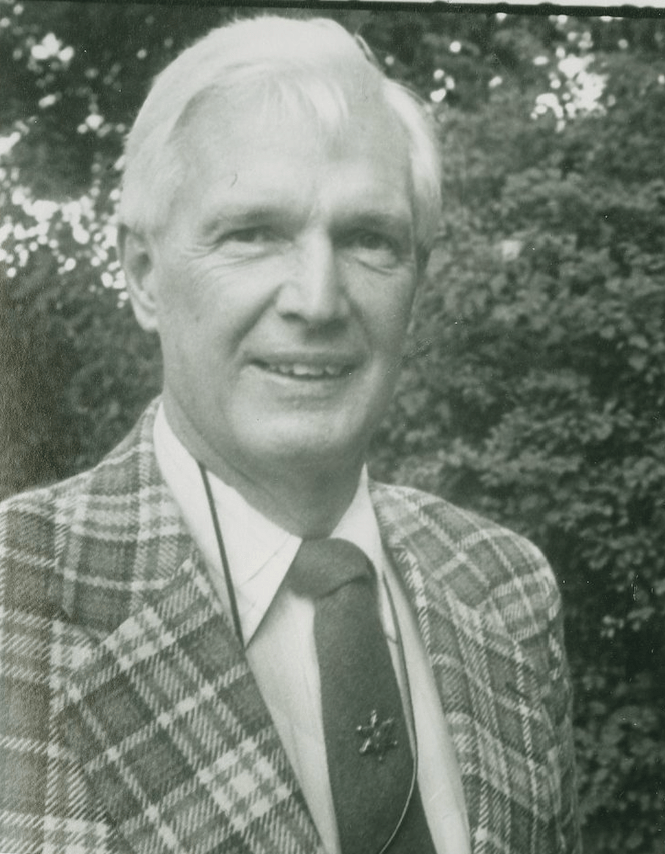

McAllister Studio, formerly on the 3rd floor of 44 Gerrard St. East
Who is the McAllister Studio named after? First and foremost, Jack McAllister is the founding father of the theatre school. Yes, I say father because those who knew him knew he called the theatre school “his baby.” It all started with him. If you pay attention around the School of Performance , certain things are named after him; his presence is hard to miss.
In 1951, McAllister was asked to head the English department at X* Polytechnic Institute. He had a strong passion for theatre, so he produced music operas and staged events in collaboration with other programs available at the time: Radio Television Arts, Fashion, Architecture, Interior Design. These extracurricular theatre opportunities occasionally resulted in students failing other courses. Jack became increasingly interested in creating a theatre training program in Toronto, as the only other Canadian professional theatre school (National Theatre School) was in Montreal and had limited enrollment. Jack originally wanted to create programs in arts administration, acting, and technical/production. The president of X Polytechnic Institute, Fred Jorgenson, liked the proposal that he insisted on having Jack do further research and take a world tour of theatre schools. Around this time, the X Theatre was being built as part of Kerr Hall. Jack began travelling in 1970, and when he came back, the new president of the institute, Dr. Donald Mordell suggested adding a dance program specifically, adopting the Canadian College of Dance (CCD) in Montreal. Dr. Mordell was originally from Quebec and knew the college directors were contemplating its closure due to the politics that were going on at the time. Jack loved dance performance, but was hesitant to include it in his proposal because he worried about the equipment, rooms, and student interest needed to pursue the program. When he flew out and met the directors Sonia Chamberlain and Maisie Macphee, he immediately decided they needed to be a part of his proposal for a theatre department. Sonia and Maisie were very charming and offered to bring all the necessary equipment over from Montreal to Toronto.
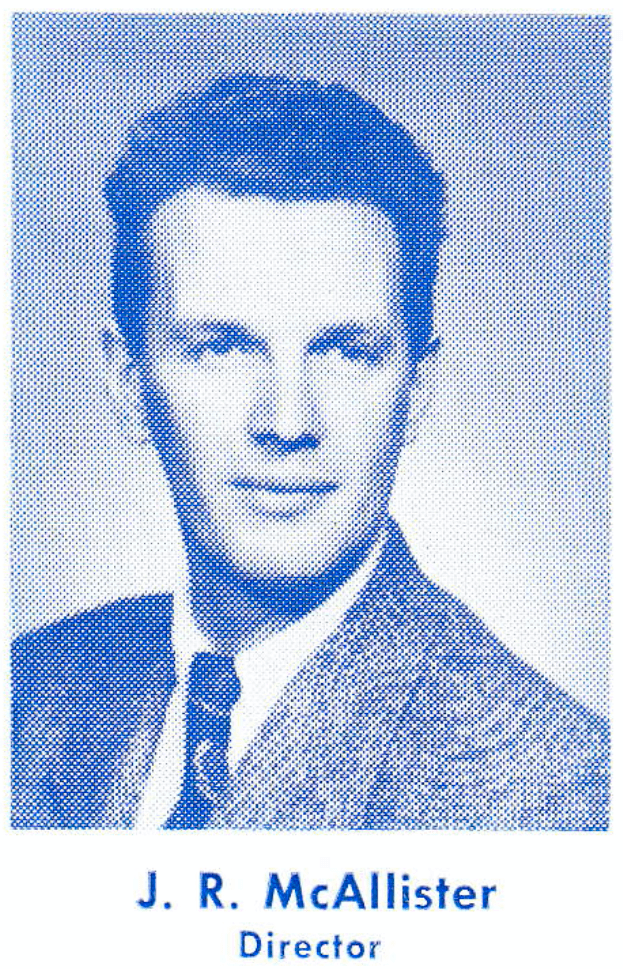
Jack McAllister, from a 1952 yearbook.
In many archived articles, it was recorded that Jack spent 18 years planning on creating the theatre programs and department. In 1971, the proposal was fully completed and accepted. This was the year that the Theatre School came to fruition. The Theatre School was the first professional theatre training program to exist in Ontario. McAllister brought in key faculty members that some of you may remember: Ed Siguard, Blu Brennan, Sonia Chamberlain, Maisie MacPhee, Sandy Black, Mary Kerr, Jack Medhurst, James Calistro, Barry Dimock, Norman Kolasky, Nora Maidan, and Jeannette Mustard. The theatre school still went through hardships; in fact, it was threatened to close down in 1974. But with Jack’s determination, along with all the other faculty and staff members who never took more than a week’s vacation, it remains open today, thriving, 50 years later. In 1982, we were officially named the X Theatre School (RTS), and in 2017 the name shifted to The School of Performance.
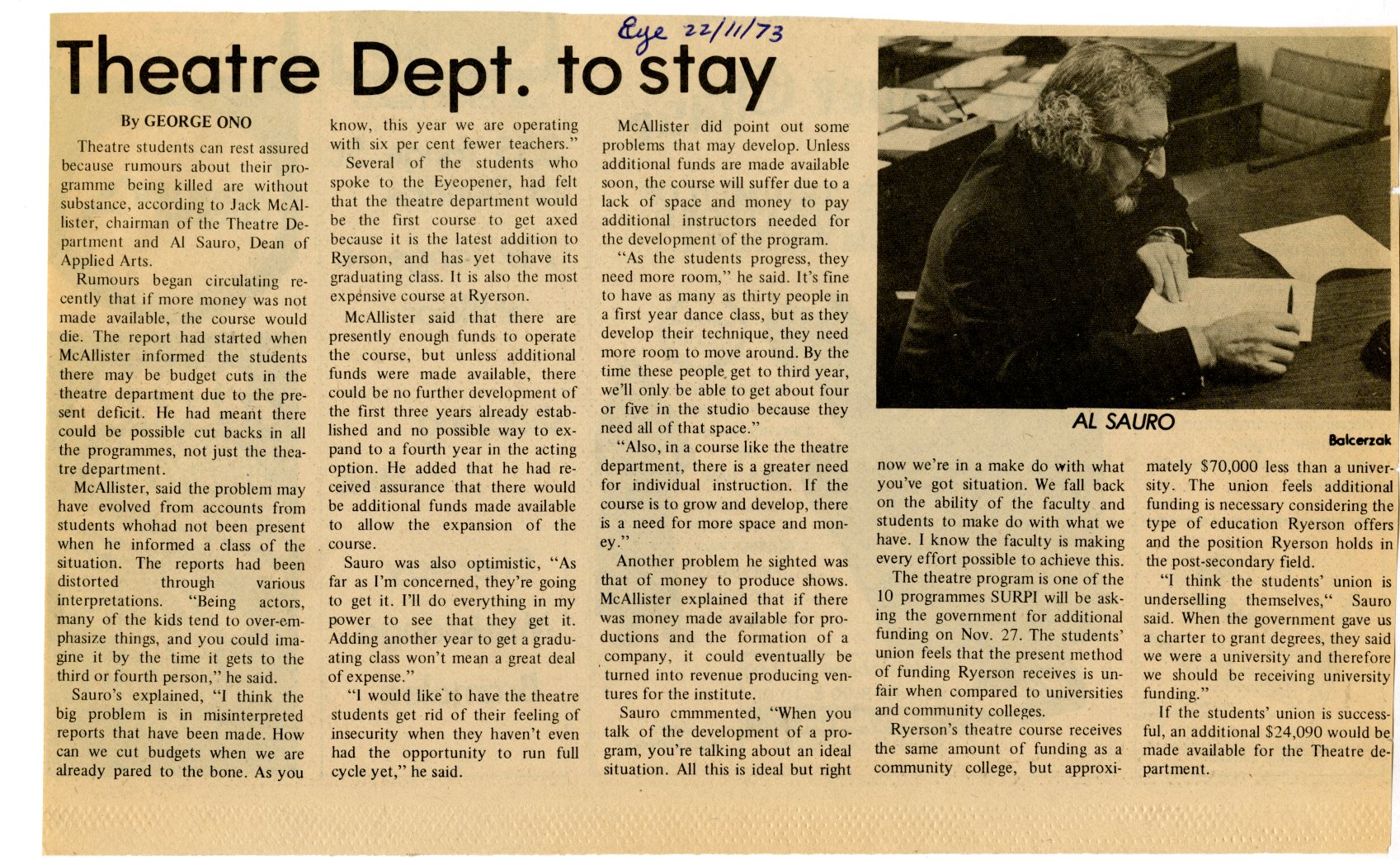
Article on addressing rumours about the Theatre Program shutting down. Archived from Toronto Metropolitan University Newspaper, November 11, 1973.
School = Family
Jack McAllister wasn’t just known for his unwavering love for theatrical arts; he was also known to make a home for those around him. Jack treated the staff members and students as if they were his family. After retiring, he constantly came back to visit his colleagues and students. Here are a few examples and stories I heard from past staff, faculty and students.
Faculty
In a phone call with Maisie Macphee (former co-director of the Dance program with Sonia Chamberlain), she recalled how welcoming McAllister was. Jack made sure the faculty members were treated like a close-knit family. When Sonia and Maisie rented a place in Scarborough after moving their program from Montreal to Toronto, they would throw frequent tea parties in their backyard for staff and faculty of the school.
A newspaper article from 1985 indicates, the co-director of the Dance program, Sonia Chamberlain, was married at the university, and had many faculty members on hand to help with the event. Tony Abrams (Set Designer) and Ed Siguard (Administrator) were ushers for the wedding. Jack McAllister was the Master of Ceremonies!
Students
As for the students, Jack literally gave them a home! He bought a house close to campus and rented out rooms to students. Everyone did their chores; Jack would often cook dinner for everyone and have Stephen (former student alumni and boarder at the house) call over some faculty and staff to join them. Jack also had a dog named Hero. On a regular day, someone would bring the dog out for a walk in the morning then they'd all walk to the theatre together. While Jack was away for vacation or on work trips, Students would be in charge of dog-sitting. In 1996 Jack sold the house and went to tour the world.
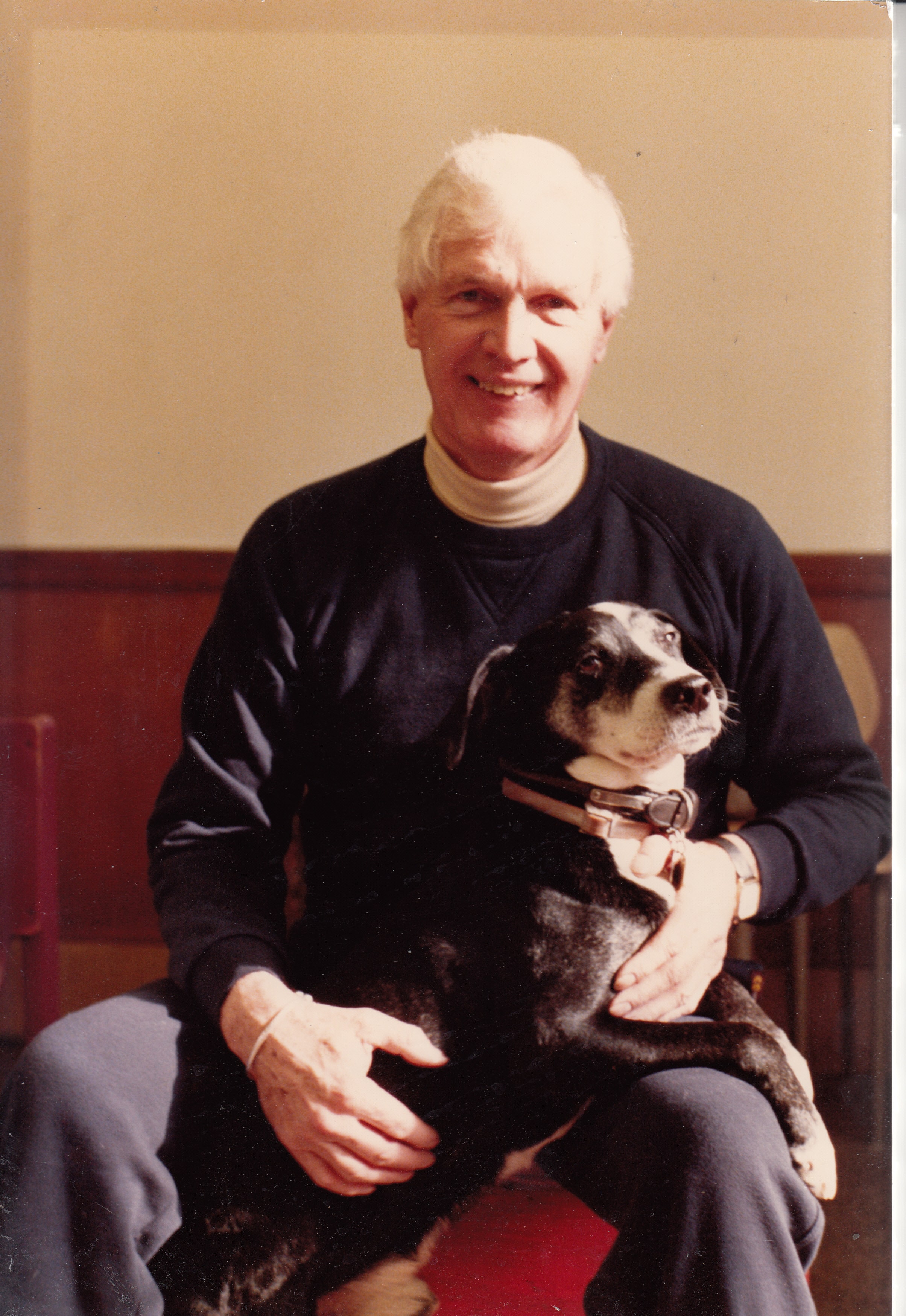
Jack with his well known dog, Hero. Photo Courtesy of the School of Performance Archives.
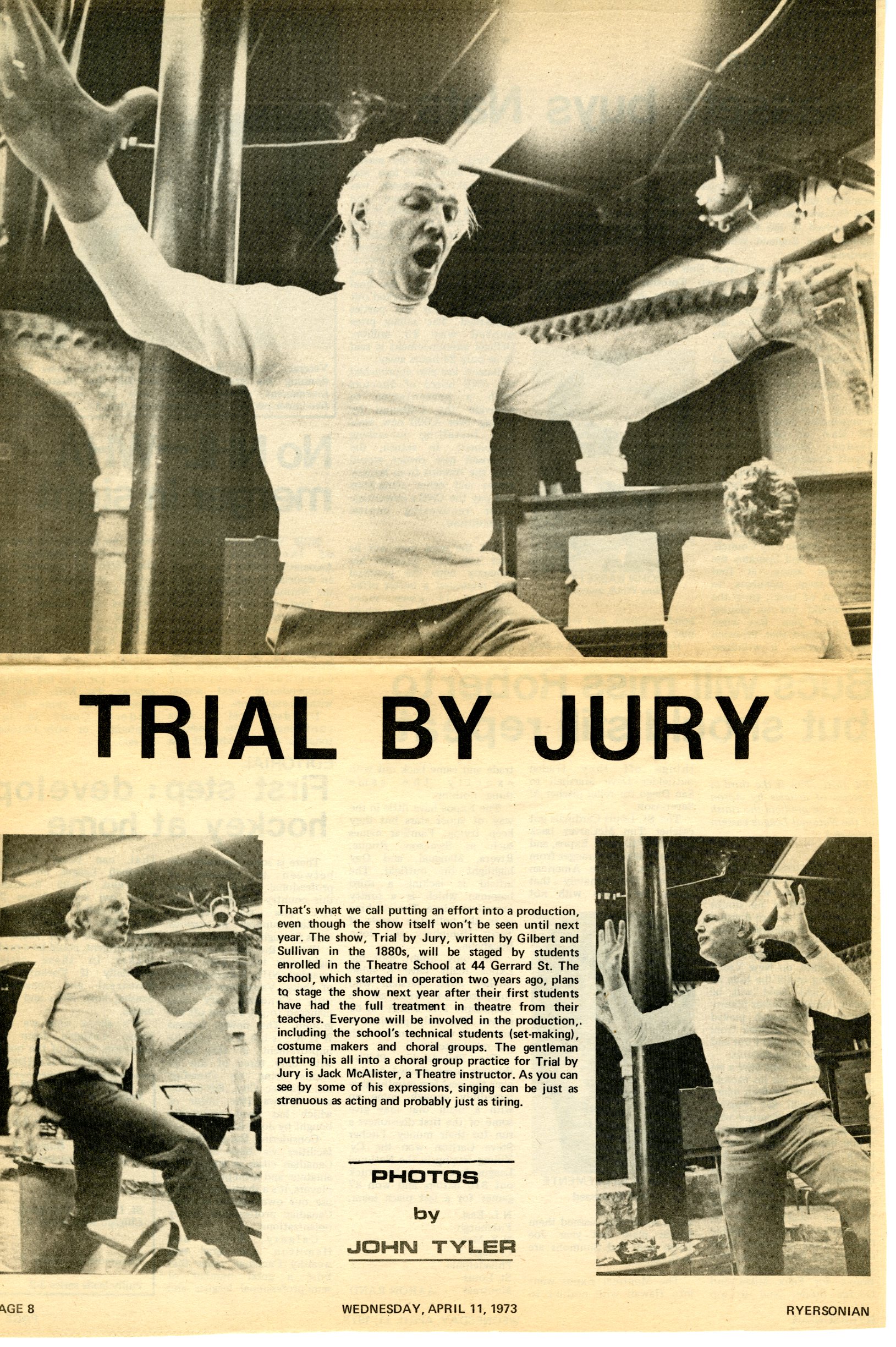
Jack participating in choral group practice with the rest of the acting students. Archived from On The Record, April 11, 1973.
Stories from Stephen Franklin
One of the students who boarded at Jack’s house was Stephen Franklin, who I had the great opportunity of conversing with over the phone. Stephen recalled how Jack fostered a welcoming environment at the shared home. Jack would often invite Stephen to see different shows, not just in the city but around the world! When they would go to show openings, Jack gave Stephen the chance to go to cast parties and meet new people. In 1982 when Stephen moved to Calgary, and his parents would come to see a show in Toronto, Jack would invite them over for dinner after the show. This happened for years, and sometimes Stephen would hear news of his parents from Jack! When Stephen went backpacking across Europe, Jack had his itinerary and would often send parcels along his journey. "At the beginning, he was a mentor to me [...], but he opened up the world to me in the arts and travel and things, and he was also a gourmet cook.” To this day, Stephen often recounts the numerous adventures and lessons he learned from Jack.
Expressive Empathy
Jack McAllister was born with a talipes equinovarus (TEV) and had a limp as he walked. He would often express empathy to those who had mobility issues. This was what connected Peter (our current Production and Operations Manager at the school) and Jack in conversation, as Peter’s father also had a shorter leg than the other. Stephen’s sister has cerebral palsy and uses a wheelchair. Every time Jack would invite Stephen’s family for dinner or for show productions, he’d do his best to accommodate his sister. In Jack’s will, he also dedicated a portion to Stephen’s sister to assist her in home care.
Jack's Legacy
As time progresses, so does age. Until the very end of Jack McAllister’s life, he fostered great relationships and created a strong community we all continue to benefit from. The next time you go to a party or gather with some classmates, remember that these connections and welcomings all started with Jack McAllister. He continually embraced old and new faces into the school. Through the strength of our community, his legacy lives on.
*The Standing Strong (Mash Koh Wee Kah Pooh Win) Task Force has submitted its final report with recommendation to develop principles to guide commemoration at the university and to respond to the history and legacy of the university's namesake. Included in the list of 22 recommendations agreed to by the university's administration, is the call to change the university's name.

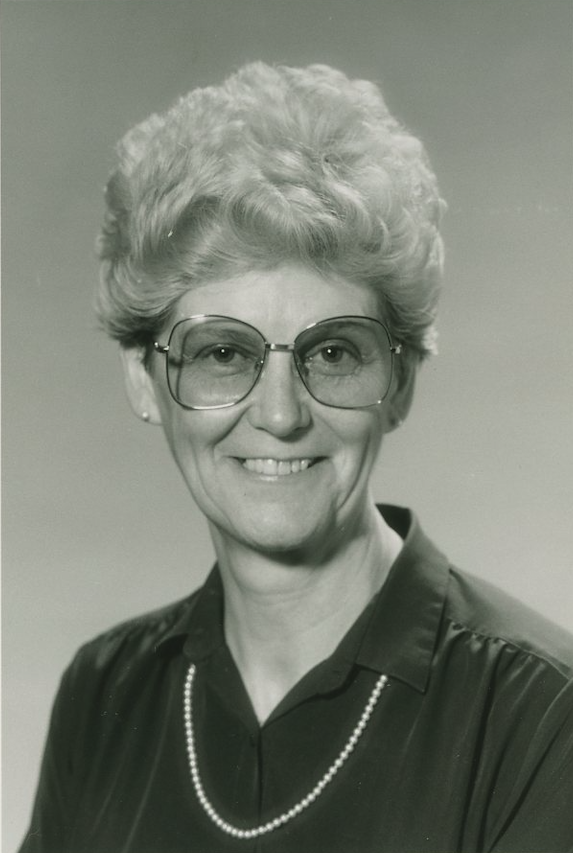
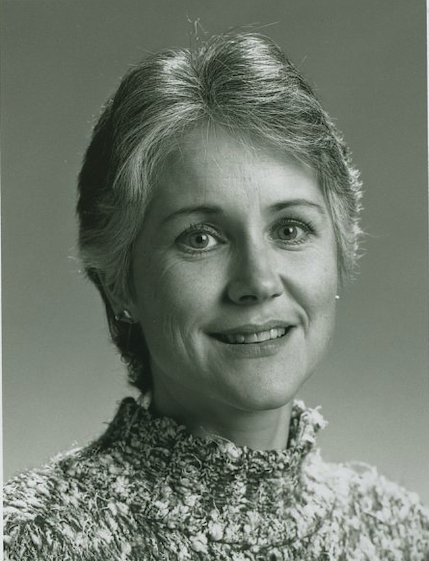
.jpg)